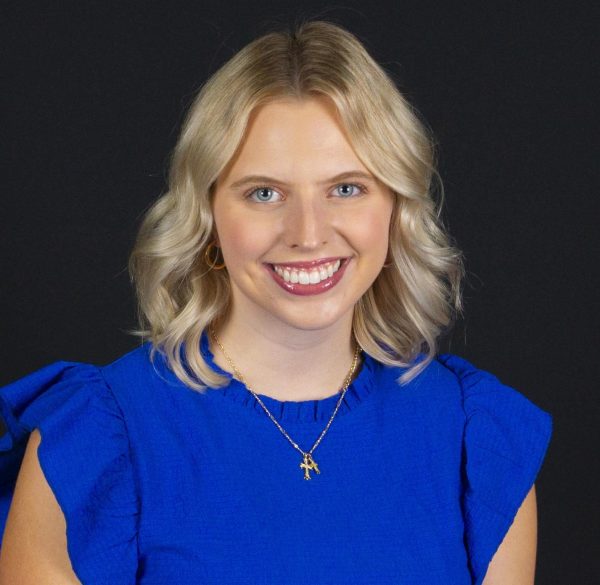The State – 10/11/22
October 10, 2022
Today’s weather forecast is predicting sunshine and some clouds with a high of 74 degrees and a low of 57 degrees.
The future of sports medicine: MSU researchers develop bandages to detect concussions
Three years ago, MSU researchers began working to harvest mechanical energy, which can be as simple as taking a step. The goal was to take mechanical energy and convert it into electrical energy.
Electrical and Computer Engineering professor Nelson Sepúlveda and two graduate students, Henry Dsouza and Gerardo Morales-Torres, have since begun studying a way to catch injuries before they progress and worsen.
Dsouza is the mastermind behind the project. He was the first to propose the idea of looking further into sports training. The research team first investigated ways to monitor movement during practices to watch for and prevent possible lesions, or damage or abnormal change in the tissue of an organism.
“For example, you could put a patch on the baseball pitcher’s hand and that will basically tell the coach what is the type of movement that is being generated,” Sepúlveda said. “It gives some further feedback for further training or even corrections that could lead … to hurting himself or herself. That can potentially lead to injuries … Whenever there’s a mechanical input in the form of stress or strain, there’s an electrical response.”
Once this study was completed and published, Sepúlveda and his students decided to take it a step further.
Henry then proposed the idea of utilizing a bandage to seek out concussions in football players. The others jumped on board.
The goal is to create a device that can detect potential concussions without interfering with the game. It’s self-powered, compact and doesn’t require a power source to operate.
Due to the positioning of the bandage on the neck, it can accurately read the movements in the head while allowing athletes to play as they normally would. These self-powered sensors also work without hindering players’ performance.
So far, only dummies have been utilized for testing purposes. The device isn’t cleared to be tried by athletes. There are necessary steps that need to be implemented prior to bringing people into the picture.
Researchers can see this being implemented into other high-impact sports, and not solely football. These sports include hockey and boxing where athletes are more prone to minor traumatic brain injuries.
73rd Michigan Antiquarian Book and Paper Show attracts crowd of paper lovers and collectors
Curious Book Shop organized the 73rd Michigan Antiquarian Book and Paper Show on Sunday at the Causeway Bay Hotel and Conference Center. The event featured 28 vendors and displayed a variety of posters, pamphlets, programs and postcards.
Casey Holland, head clerk at Curious Book Shop, said the event was a place to compile all things bookish.
“It’s a way to bring book dealers, old, used and antiquarian bookstores all together in one place,” Holland said.
The show has been happening twice per year for the last 35 years and is one of the largest of its type in the country.
Part of the allure of the show is the chance at finding something rare, event coordinator Ray Walsh said.
For collectors, this venue was the perfect place to find additions to their collections and connect with vendors from farther away than they might typically have access to.
The show also had a wide variety of handouts that were once free, such as posters of Shakespeare at the Wharton Center, gas station maps and railroad timetables.
Vendors at the show, including Vicki McMillin of Vintage by Vicki, said the show gives them an opportunity to connect with paper lovers from all over the country and engage in the collectors’ interests in the items she has to offer.
Reduce, reuse, recycle…redefine? MSU students use campus waste for atypical fashion design
Scrap fabric. Plastic tubing and mesh. Planters. CDs and mirrors. Once donated items to the MSU Surplus Store and Recycling Center, these materials are now being used by MSU Arts and Humanities students to construct costumes for the homecoming parade on Oct. 14.
The class, called Reclamation Studio, is led by artist and Residential College of Arts and Humanities professor Steven Baibak in collaboration with the MSU Surplus Store and Recycling Center. Any of the materials at the store or free recycled materials, all sourced from MSU’s campus, are available for students to use in their designs.
The Surplus Store and Recycling Center, part of infrastructure planning and facilities at MSU, is responsible for managing all of MSU’s waste as a resource, said Surplus Store education coordinator Katie Deska.
Within the class, three groups of students are working together to redefine the typical suit with recycled materials in a project called Spartan Upcycle. Baibak has led versions of the class for four semesters now, but this is the first time students will get to showcase their designs in the homecoming parade. The class aims to teach students resourcefulness and how to be healthy consumers, Baibak said.
Emma Newman, a third-year Arts and Humanities major at MSU, said her and her group mates’ costume was inspired by a planter shaped like a dog that they found in the free section at the Surplus Store.
Based on original reporting by Melanie Soverinsky, Maggie George and Kayla Nelsen.

































